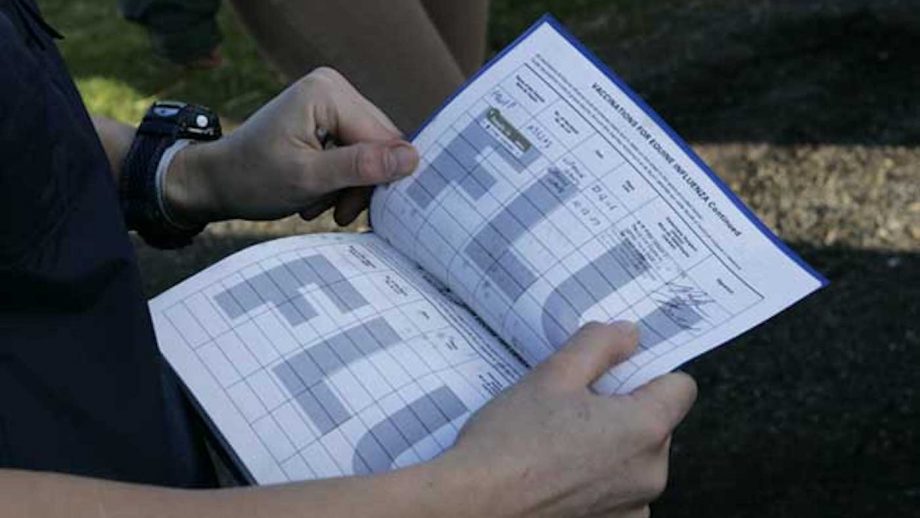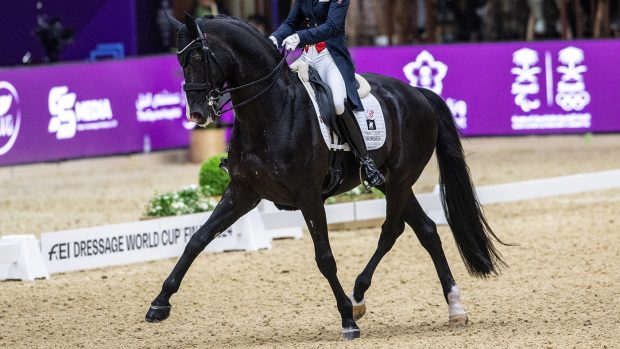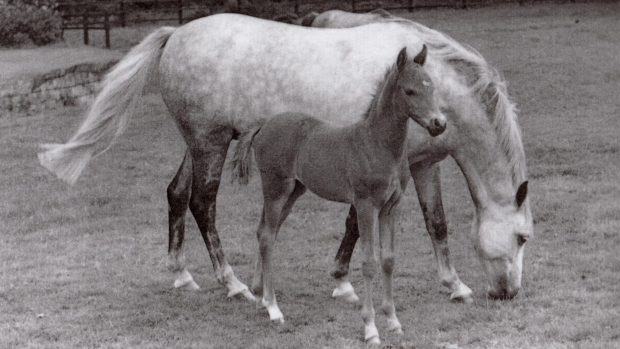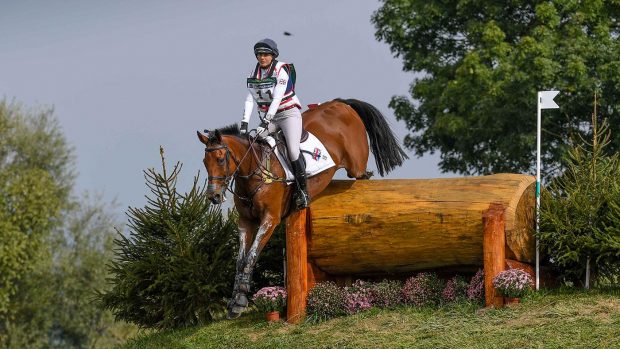The British Horseracing Authority (BHA) has shut down racing on all British racecourses today (7 February) in an attempt to restrict the spread of the current outbreak of equine flu.
The BHA was told yesterday by the Animal Health Trust (AHT) of three confirmed cases of flu in vaccinated horses in an active racing yard. Horses from this yard had raced yesterday at Ayr and Ludlow, “potentially exposing a significant number of horses from yards across the country and in Ireland” to the virus.
“The fact that the cases have been identified in vaccinated horses presents a cause for significant concern over welfare and the potential spread of the disease and the action to cancel racing has been viewed as necessary in order to restrict, as far as possible, the risk of further spread of the disease,” a BHA statement said last night.
“The BHA has worked quickly to identify which yards could have potentially been exposed today and identify the further actions required. The BHA is presently communicating with yards potentially exposed to ensure appropriate quarantine and biosecurity measures are put in place and horse movements restricted to avoid possible further spread of the disease.”
The British Equestrian Federation said it is “closely monitoring the situation”, adding: “Veterinary experts have advised that it is not necessary to cancel other equine events at this time, but we will issue a further update once the full extent of the outbreak is known.”
But the federation added: “It is essential that any horses showing signs of possible equine flu, or horses that might have been in contact with possibly infected horses, do not travel to competitions or other events where there will be groups of horses. If your horse has been in contact with an infected horse we suggest that you should take immediate veterinary advice.
“We advise that horses are vaccinated with a booster for equine flu with a vaccine that contains the Florida Clade 1. If your horse is currently vaccinated, but it has been longer than six months since the last vaccination, we recommend that you discuss a booster with your vet.”
British Dressage CEO Jason Brautigam said today the news is “obviously very concerning for all horse owners and riders”.
“We are monitoring the situation closely and a full statement will be issued shortly,” he added. “The most important thing for now is to ensure that flu vaccinations for your horses are up to date.”
The Point-to-Point Authority said it is also monitoring the situation regarding the possible impact on fixtures.
Horse Racing Ireland and the Irish Horseracing Regulatory Board have confirmed that racing will continue in Ireland at present, but runners from Britain will not be allowed to race in Ireland until further notice.
In a further statement issued today, the BHA said the cancelling of racing was a “precautionary measure” and “standard contingency in the event of an infectious disease affecting our horses”.
“It was essential that racing be stood down today and controls on movements of horses be put in place in order to attempt to control the spread of the disease, and the decision was taken swiftly last night that this course of action should be taken, once the extent of the issue was known,” the statement said. “The BHA consulted with its veterinary committee before making this decision.”
Early stages
The BHA said it will try to issue regular updates, but is “still in the early stages of assessing the scale and severity of the outbreak”.
“We are working quickly to identify the extent of the infection and will have more information when further test results are returned today. The results from those tests will not be known until this evening,” the statement said, adding that after the results are known, a decision will be made on the impact on racing in the coming days.
“We are contacting trainers of all yards which might conceivably have had contact with horses from the affected yard in order to advise them on biosecurity measures and to ask them not to move horses,” the statement said.
“All British racehorses are vaccinated against equine influenza. However this strain has affected vaccinated horses. The disease may be serious in unvaccinated horses, although symptoms in vaccinated horses are usually mild and transient.”
The clade of virus confirmed in four outbreaks of flu diagnosed in Britain so far this year, not including the two in Suffolk and one in Yorkshire this month, is Florida clade 1.
Continues below…

Equine flu: do we need an epidemic before we act?
Horse owners need to understand the importance of vaccination, an expert has warned

Equine flu: what all owners need to know to protect their horses

Subscribe to Horse & Hound this spring for great savings
The AHT said in a statement: “For many years Florida clade 2 (FC2) has been the dominant clade circulating in Europe. It was responsible for the 2003 outbreak in Newmarket, the last major outbreak affecting the UK, and caused sporadic outbreaks across Europe ever since. Florida clade 1 (FC1) however has been less common inEurope. Although the last isolation of FC1 in the UK was February 2018 (from one outbreak affecting two horses that were recently imported from the Netherlands) FC1 had not been detected in the UK since 2009 and in Europe since 2011.”
Dr Richard Newton, director of epidemiology and disease surveillance, at the AHT, said “With frequent movement of horses and an ability to spread without direct contact, equine flu might appear at any time and in any location. With the increase in cases in both vaccinated and unvaccinated horses, we would urge all horse owners to be extremely vigilant and to follow recommended guidelines on how to detect and prevent the spread of this infectious disease. If horse owners are concerned they should contact their vet immediately for advice.”
For all the latest news analysis, competition reports, interviews, features and much more, don’t miss Horse & Hound magazine, on sale every Thursday.





